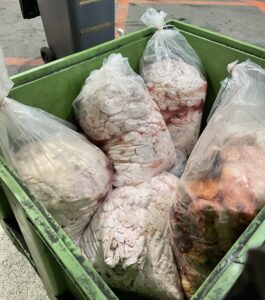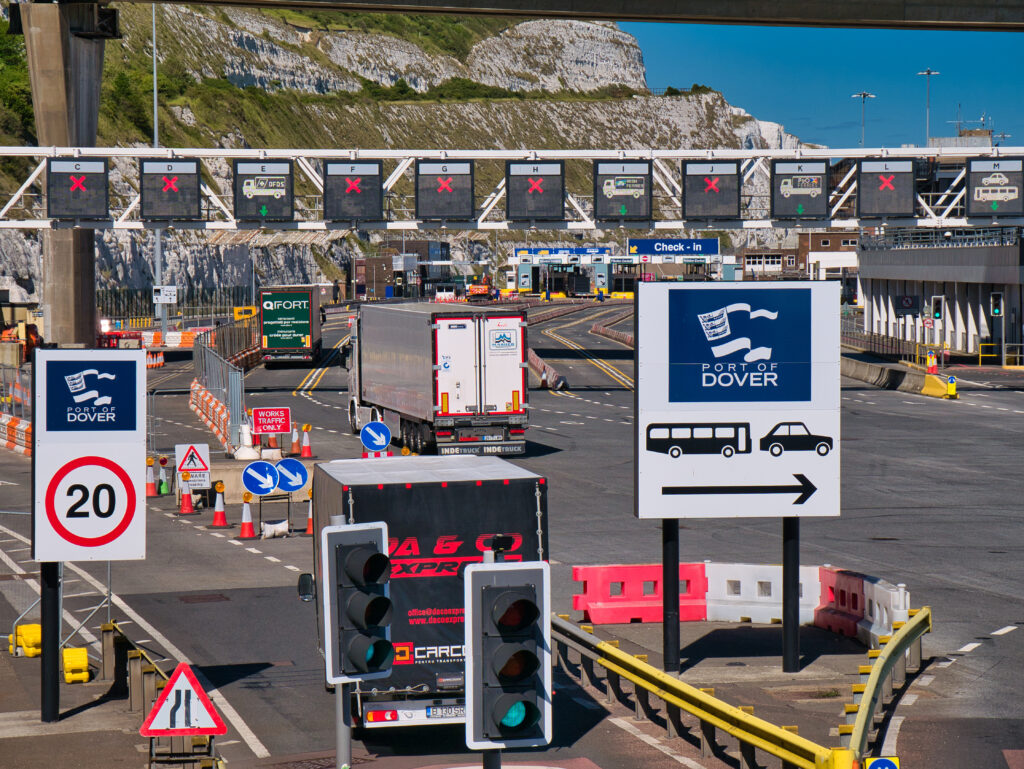A coalition of 26 UK livestock trade associations has written to Defra Secretary Steve Reed to express the industry’s ‘serious concerns’ over the current state of border controls at the Port of Dover.
The Livestock Chain Advisory Group (LCAG) told Mr Reed these concerns now cover legal and illegal products of animal origin (POAO). The organisations, which include the NPA, NFU and other UK farming unions, the British Pig Association, British Meat Processors Association, the Association of Independent Meat Suppliers, the Livestock Auctioneers Association and Dover District Council as an additional signatory, said they had repeatedly raised concerns with previous ministers about the volume of illegal meat able to enter the country via Dover Port.
Dover Port Health Authority (DPHA), in conjunction with Border Force UK, has confiscated more than 100 tonnes of meat since September 2022, but funding for this key work has been cut back since April.
“It is now clear that not only does the scale of the issue suggest organised crime, even though those responsible are not penalised in anyway, that this is just the tip of the iceberg and therefore even greater resource is required, despite the suggested cut to funding,” the letter states.
Legal imports
More recently, however, it has become apparent that commercial and legal meat imports also pose a risk to national disease security following the implementation of the Border Target Operating Model (BTOM) and its operation at the Sevington Inland Border Facility.

“DPHA have informed us that product if animal origin (POAO) from the rest of the world is arriving and entering the country in huge volumes and without any physical checks or control,” the letter states, adding that only 10% of the required checks are being completed by Ashford Borough
The letter explained that loads can be auto-cleared via the timed-out decision contingency feature (TODCOF) two hours prior to their arrival, meaning many loads are auto-clearing through Sevington even if they’re entering via a different port, port as they know no physical checks will take place.
“This is creating and aiding an entirely new and alarming route into GB for food crime and illegal meat to enter without interception,” the letter stated.
The organisations blame the gaping holes in the border controls on the decision to move inspections under BTOM from the port to Sevington, 22 miles inland, coupled with Defra’s Border IT systems, which they say remain ‘unfit for purpose’ and are unable to identify vehicles that have been called for inspection but don’t arrive.
“These are not just teething problems. The regime at the Short Straits is flawed and needs an independent and comprehensive review and subsequent overhaul,” the letter states.
It also pointed that, due to the delay in introducing personal import checks, DPHA is reporting an increase in goods arriving displaying the health/identification, indicating they travelled from the highest risk countries for ASF and classical swine fever ‘without intervention’.
They warn that the situation is a ‘disaster waiting to happen’ and urge Ministers to visit the port and address the funding of the service at Dover.
Not secured
Lucy Manzano, DPHA’s head of port health and public protection, said: “Funding for ASF checks is still not secured and the border is now operating with a gaping hole in it, which is enabling POAO from around the world to arrive into GB via personal, commercial and illegal routes into our markets without completed checks.
“We have written to the new Defra Secretary and Farming Minister requesting an urgent meeting and review.”
Food Security Minister Daniel Zeichner told the NPA in a recent meeting, that border controls, including at Dover, was his number one priority.
A Defra spokesperson said preventing an outbreak of ASF in the UK ‘remains one of our key biosecurity priorities’. He said Port Health Authority (PHA) officers are supporting enforcement of the ASF safeguards, alongside Border Force at ports and airports in England.




